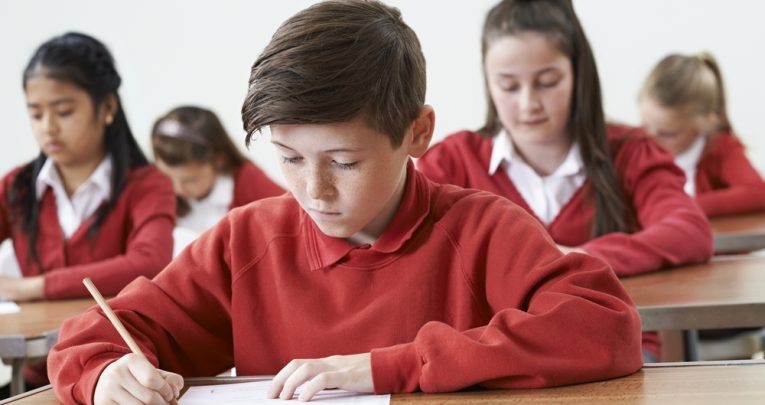2016 SATs Results Published – But Not Comparable With Previous Years

Nicky Morgan believes this year's KS2 results show 'No limit to pupils’ potential' – but unions maintain that they're the product of mishandled government reforms…

- by Teachwire
- Classroom expertise and free resources for teachers

This week sees the publication of the attainment results of the latest KS2 assessment (AKA ‘SATs’).
This year’s figures are notable for being the first to emerge following a major overhaul of the primary curriculum 2014, which involved a raising of expected literacy and numeracy standards – to the extent that the 2016 test results are not directly comparable with test results from previous years.
The headline statistics highlighted by the government include the following:
• 53% of pupils met the new expected standard in reading, writing and mathematics • 66% met the new expected standard in reading • 70% met the new expected standard in mathematics • 72% met the new expected standard in grammar, punctuation and spelling • 74% met the new expected standard in writing
In place of the previous ‘levels’ system, KS2 test results are now based on a system of scaled scores, whereby a score of 100 is set as the ‘expected standard’, with pupils scoring below 100 deemed to be ‘working towards the expected standard’ and those scoring higher judged to be ‘working above the expected standard’.
According to the DfE, the ‘average pupil’ this year is performing above the expected standard, with the averaged scaled scores across all three subjects coming out as follows:
• Reading – 103 • Mathematics – 103 • Grammar, punctuation and spelling – 104
Commenting on the figures, Education secretary Nicky Morgan said, ‘We know we are asking more, but we’re doing that because we are committed to giving young people the best start in life – and today’s results show there is no limit to pupils’ potential.
‘This is the first year we have assessed pupils under the new more rigorous system and it is no surprise that this year’s results look different to previous years, but despite that the majority of pupils have achieved above and beyond the new expected standard.’
The numbers published this week are only part of the story, however. Due for publication some time in autumn are the results for pupil progress, which will combine with the attainment figures to establish the performance standards that schools will have to have met over the past year. Nicky Morgan has previously stated, however, that any rise in primary schools failing to meet minimum standards will be limited to 1 percentage point more compared to last year, so that schools can be given time to get accustomed to the new system.
Ofsted inspectors and regional schools commissioners have also been advised to take into account the change in assessment system when considering schools’ performance over the course of this year.
The profession responds
Julie McCulloch – Primary and Governance Specialist, Association of School and College Leaders “It is essential to understand that the standard pupils are expected to achieve in these tests has been raised significantly from previous years. It is therefore meaningless to compare this year’s headline results with those from previous years, and these statistics must be handled with extreme caution in terms of trying to reach any judgements.
“Furthermore, the introduction of these tests by the Department for Education has been rushed and chaotic. The children tested this year have only been studying the new curriculum for two years when it is a programme designed to be studied over four years. To add to the pressure, the department has drip-fed changes and updates to the procedures for teachers assessing writing, making it extremely difficult to keep up to date with exactly what is required.
Dr Mary Bousted – General secretary, Association of Teachers and Lecturers ‘The reading tests left many children distressed and in tears and now the Government has had to push the pass mark down to 21 out of 50 because the test was too hard. We are worried that many children will have lost their confidence as readers because of this test. And even the Government must be worried about the impact of the low scores because it’s felt the need to explain the results to schools so they know that all schools will have similarly low results.
“Ministers need to take full responsibility for the mess. They rushed and botched implementation of the new KS2 SATs, which meant the children who took the KS2 assessments received less than a third of the curriculum being assessed. And to cap it all, the data released today cannot be meaningfully compared to historic data as the curriculum, assessment materials and reporting methods are all completely different. For this reason we do not believe that the results this year should be reflected in any judgements that Regional Schools Commissioners may make about failing and coasting schools.
Chris Keates – General secretary, NASUWT “It is regrettable that the publication of Key Stage 2 SATs results…has been marred by the Government’s mishandling of curriculum and assessment reforms which has created deep anxiety, confusion and uncertainty for pupils and schools. As the Secretary of State has said herself, these results cannot and should not be compared to previous years’ results.
“Despite the efforts of teachers and pupils, the value of this year’s test results will be poured over and questioned and schools face the prospect of being held to account unfairly on the basis of this year’s results data. The NASUWT reiterates its call for the Government to commit to conducting an open review of all of the issues surrounding this year’s tests and ensure that we have a system of assessment that is fit for purpose and commands the confidence of teachers and the public.”
The full results can be seen here.
Readers might also be interested in this ‘KS2 Results – Frequently Asked Questions‘ post by regular Teach Primary and Teachwire contributor Michael Tidd










